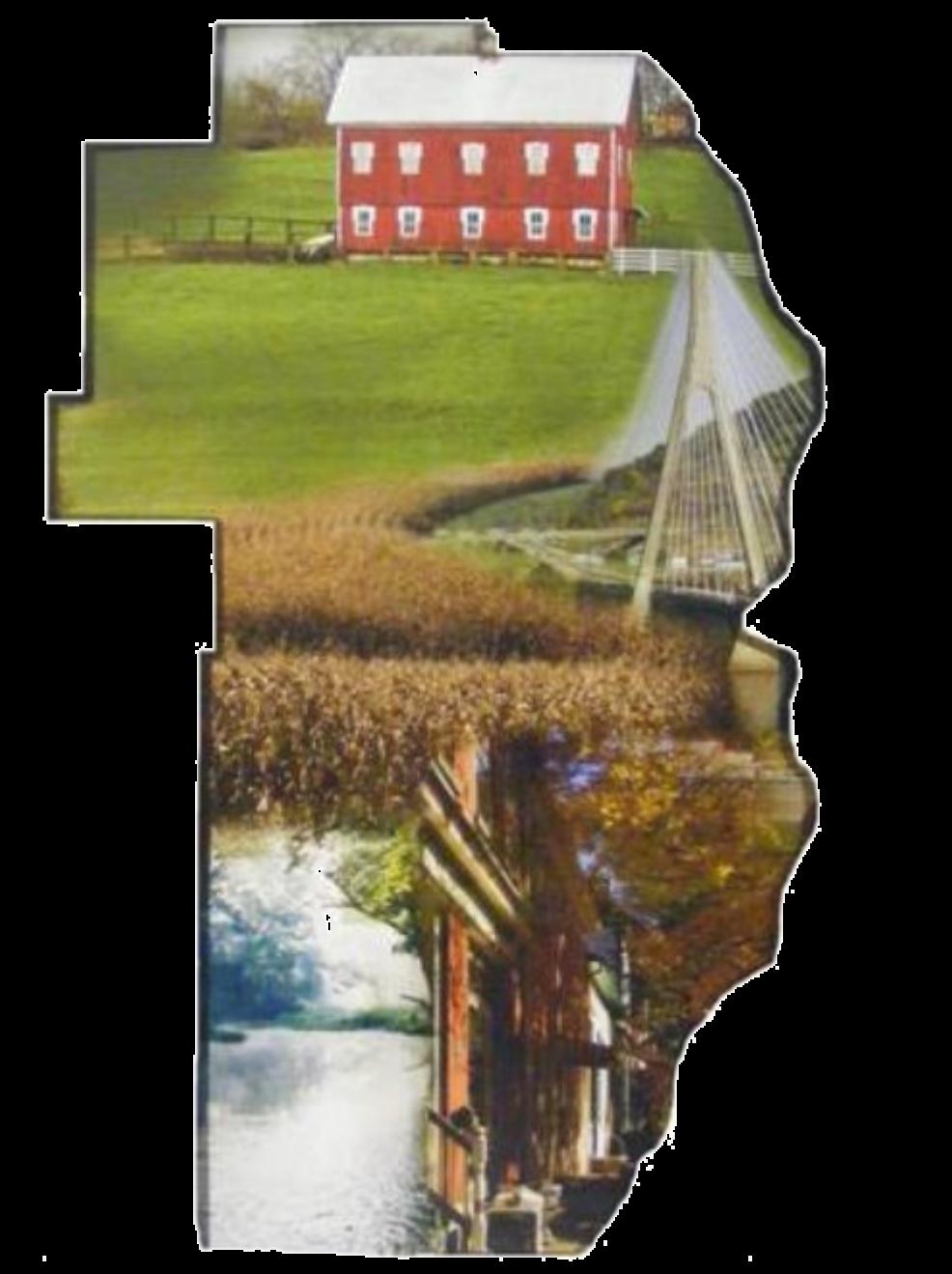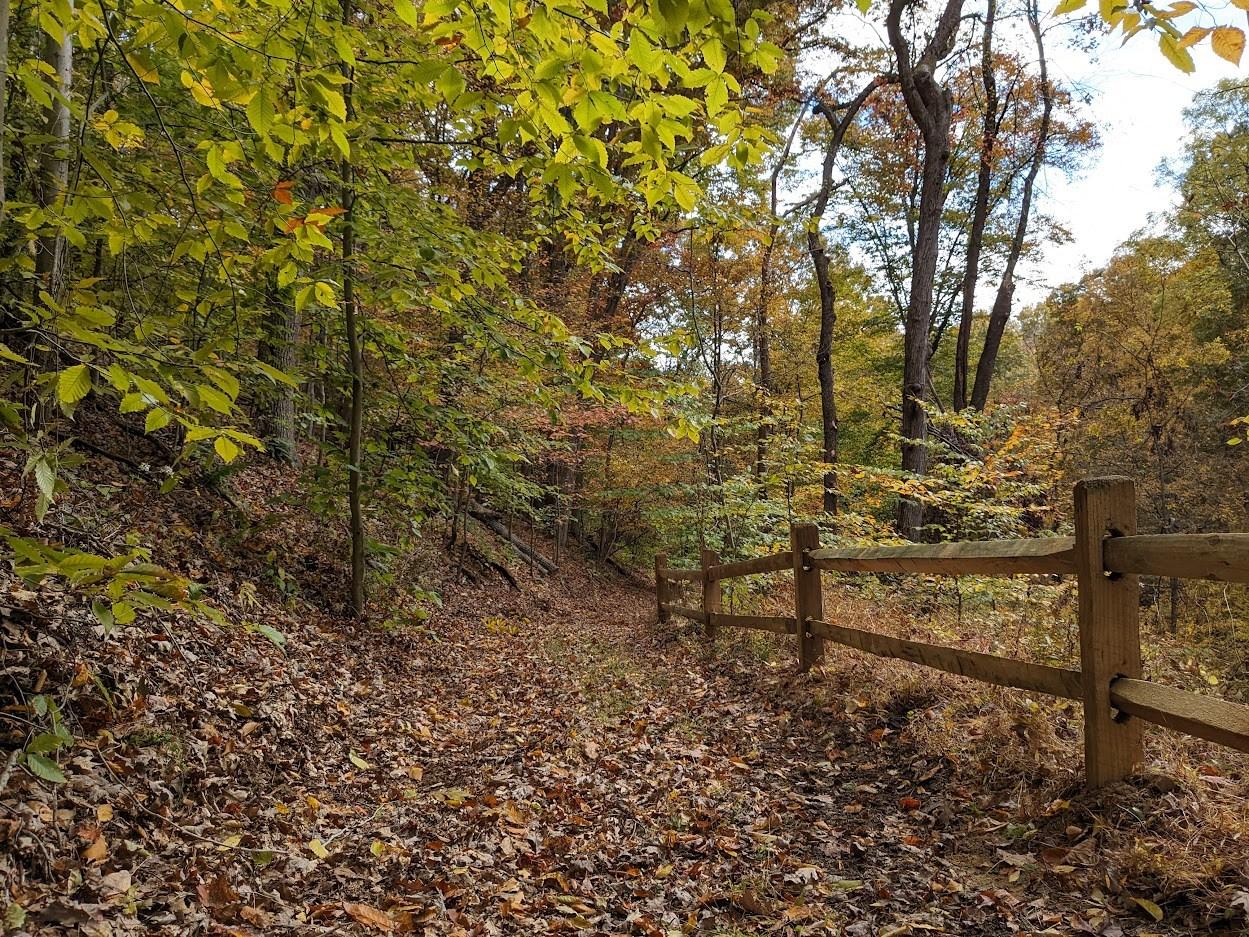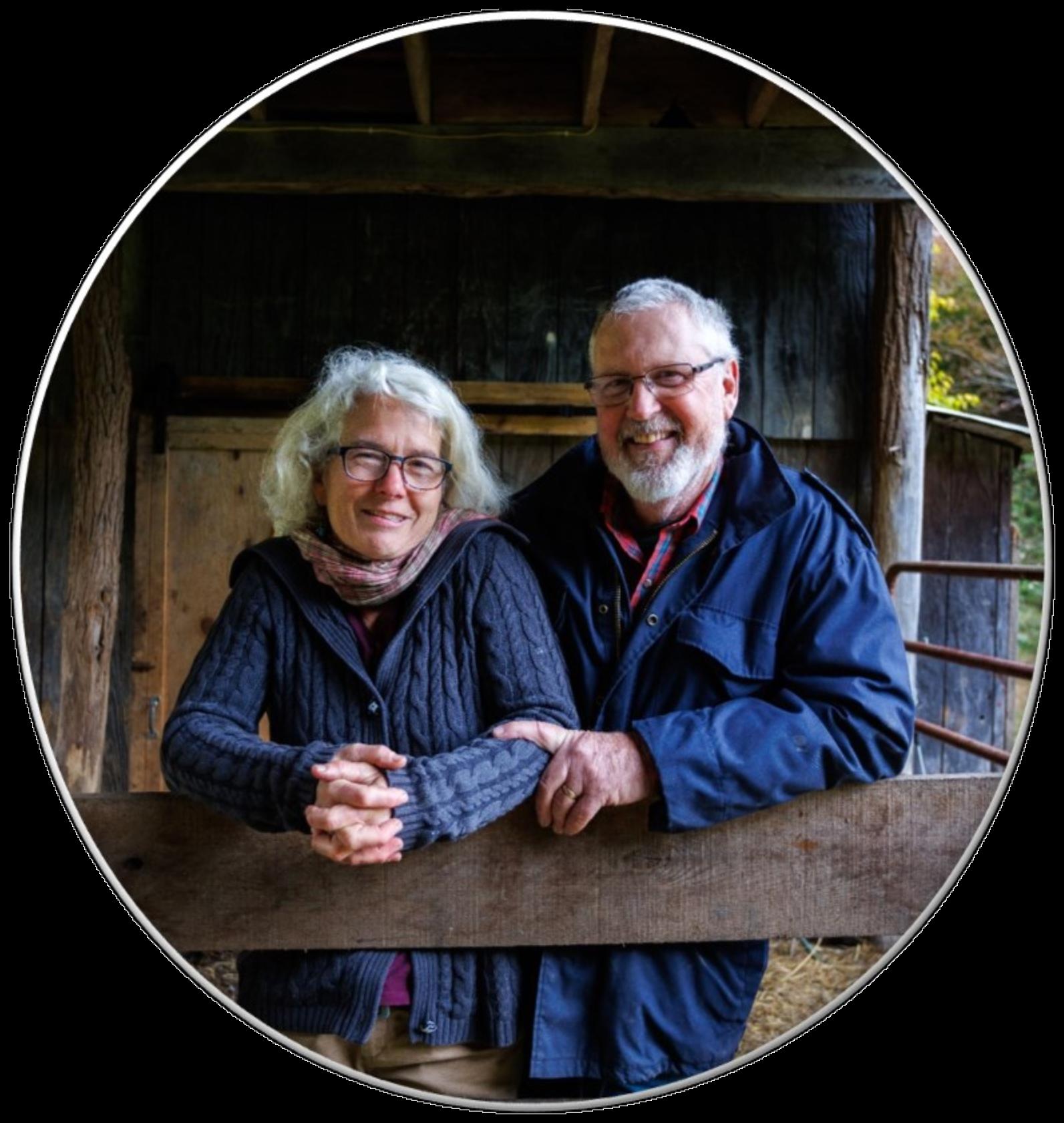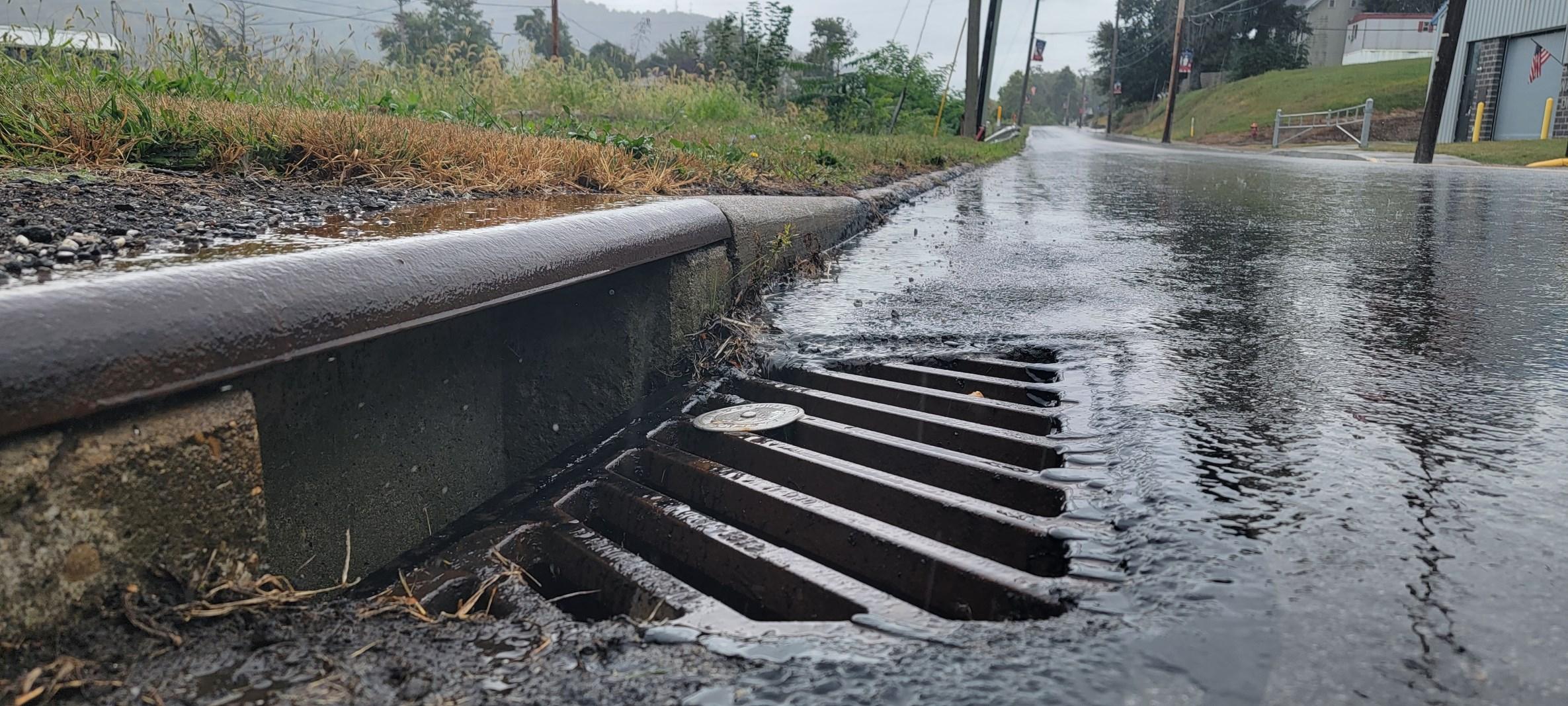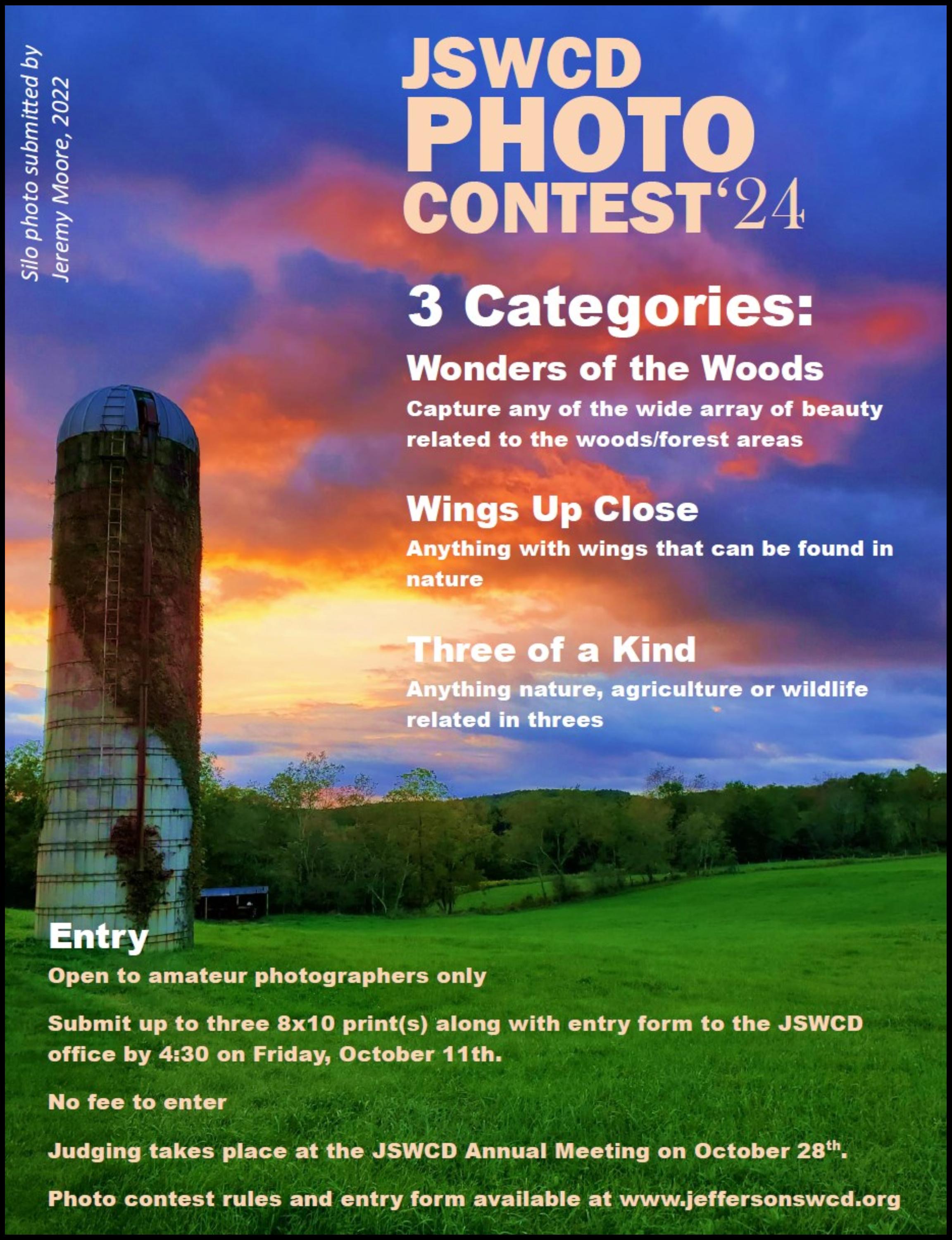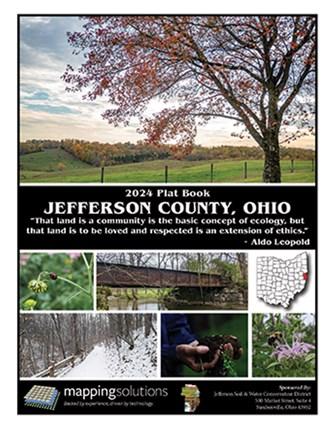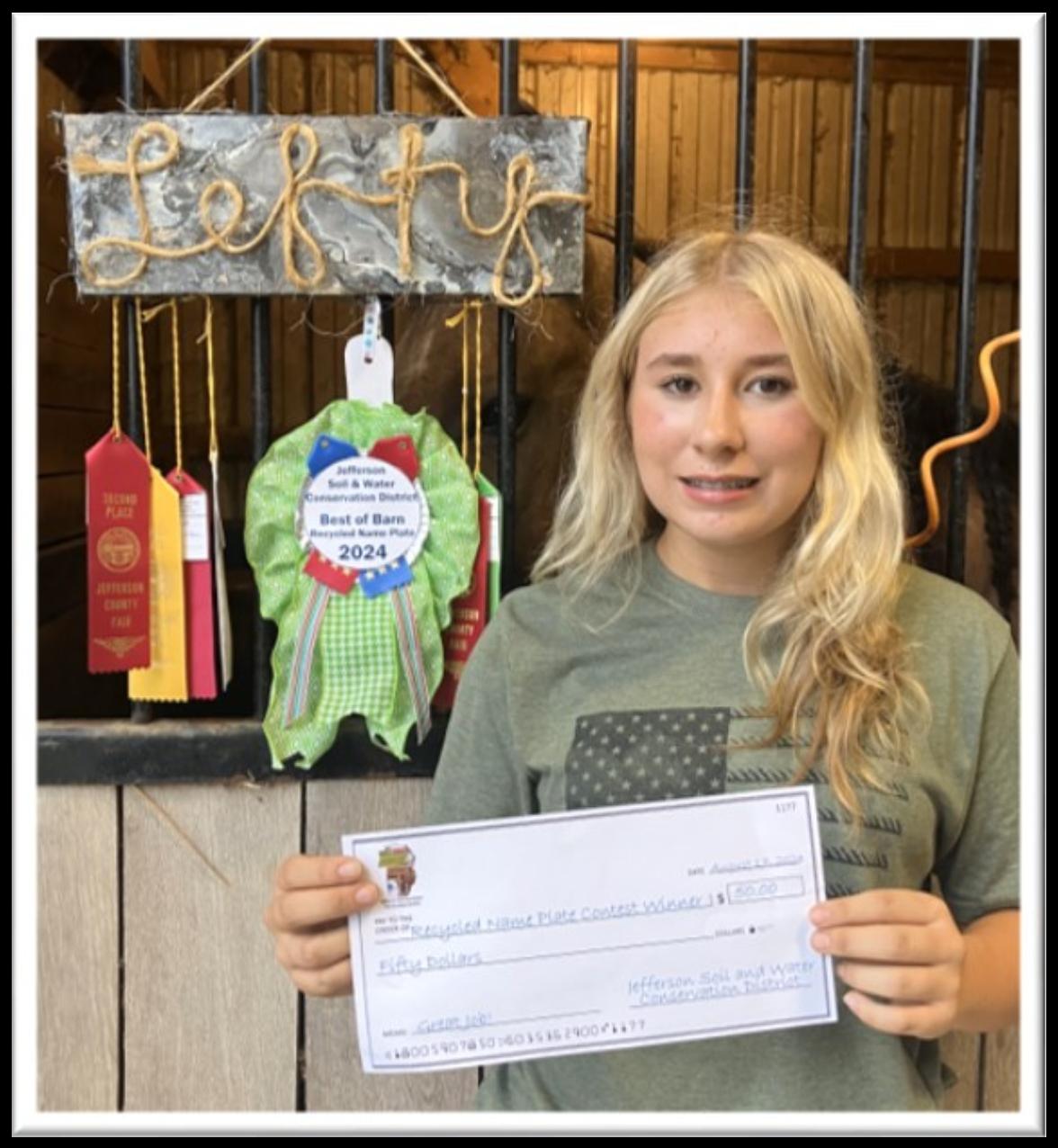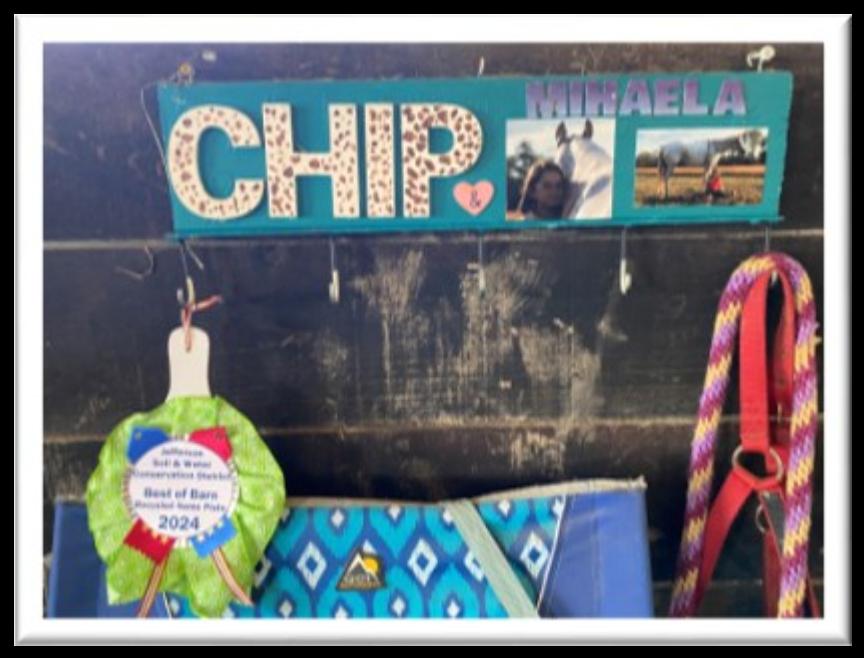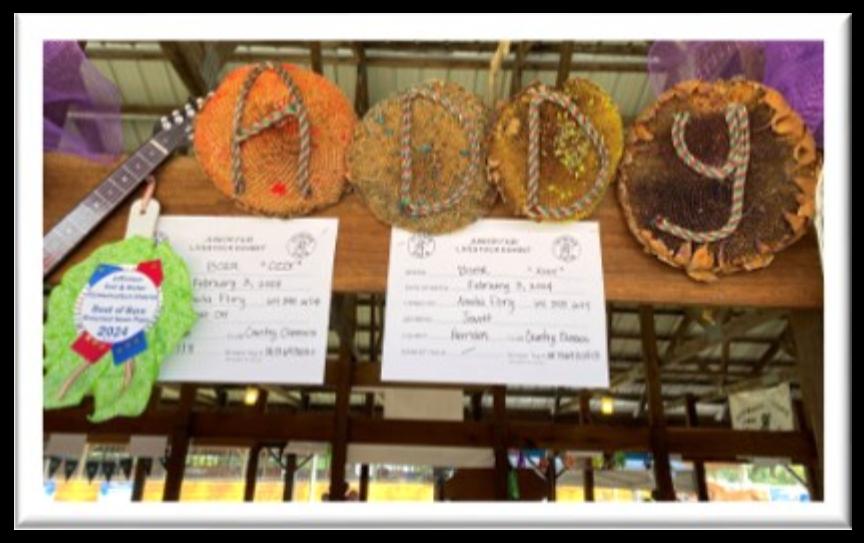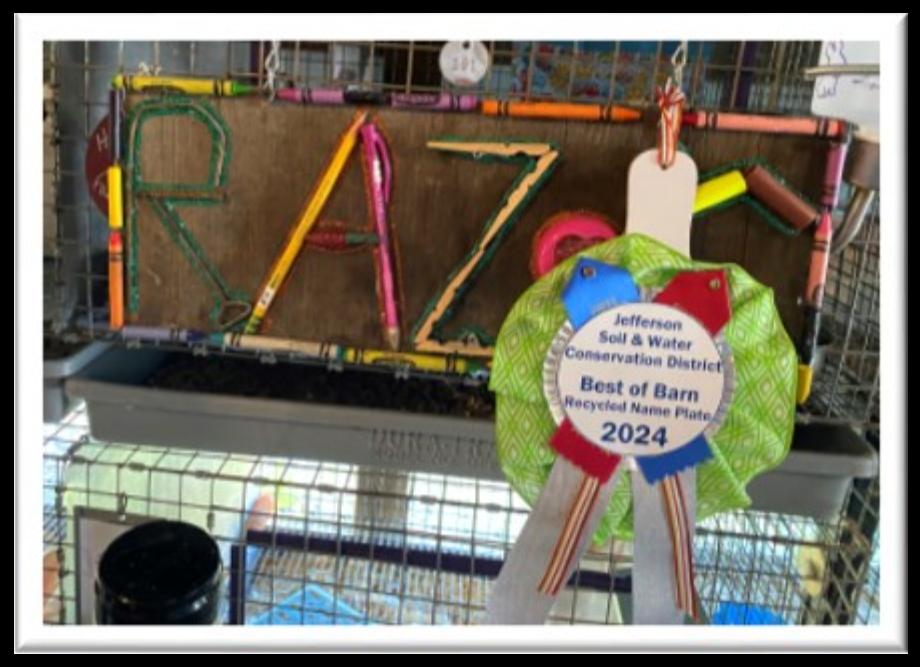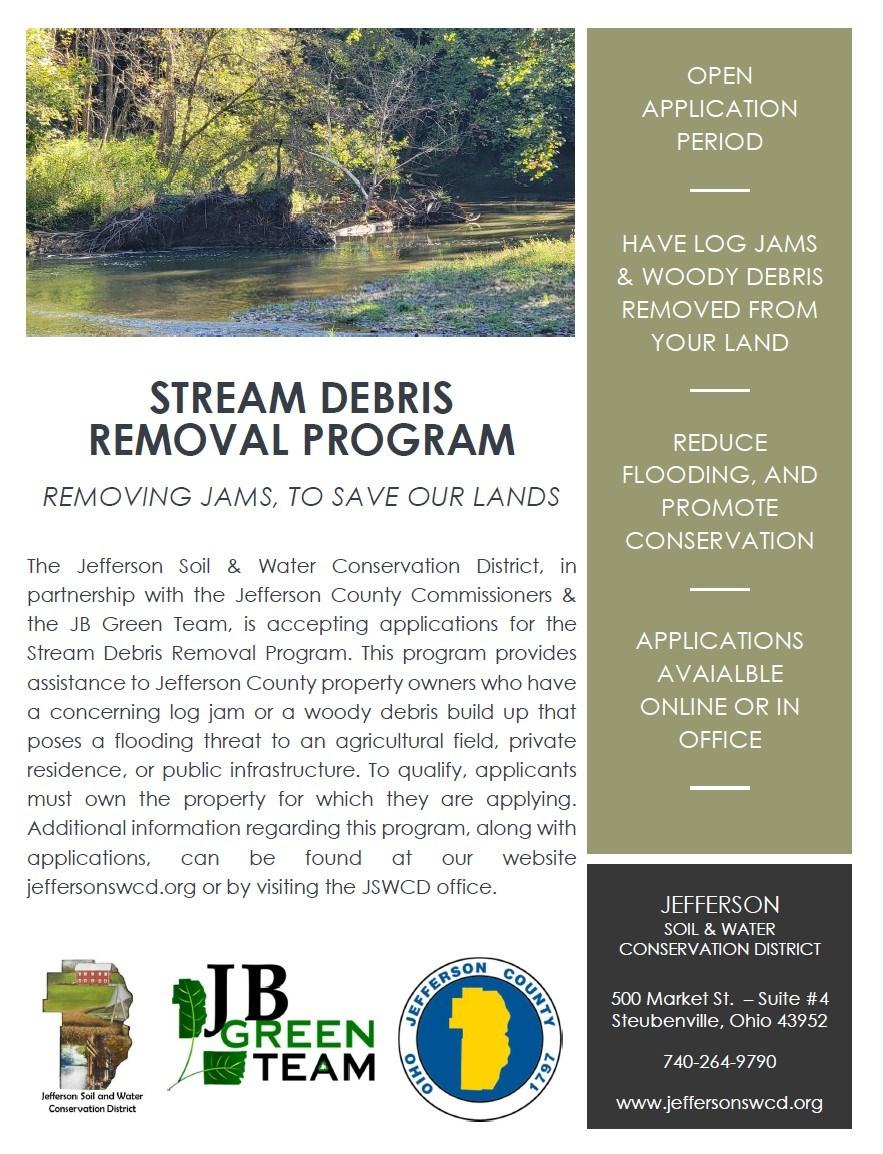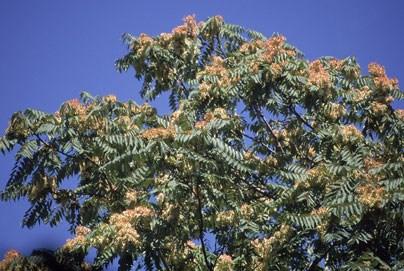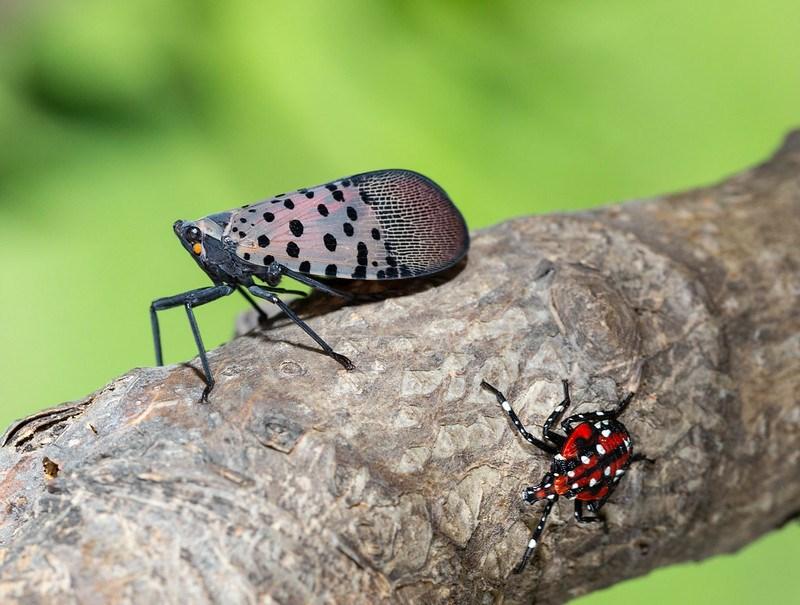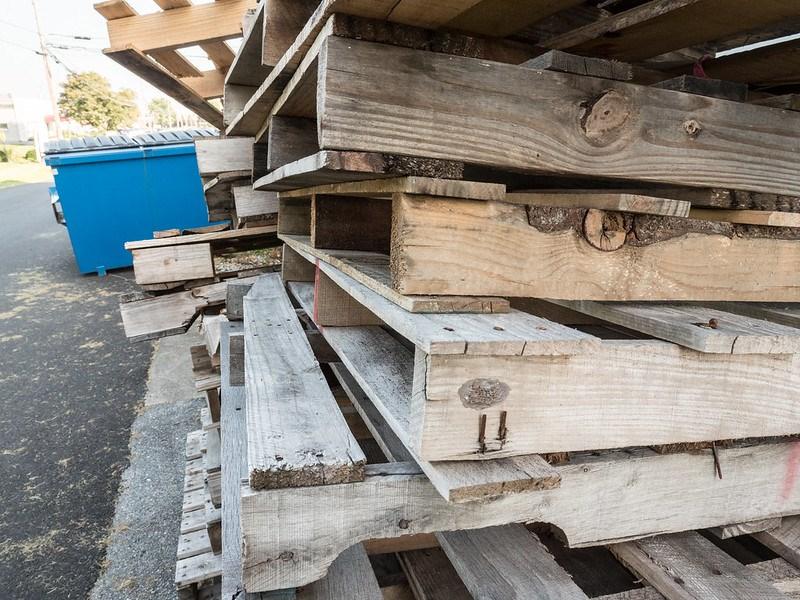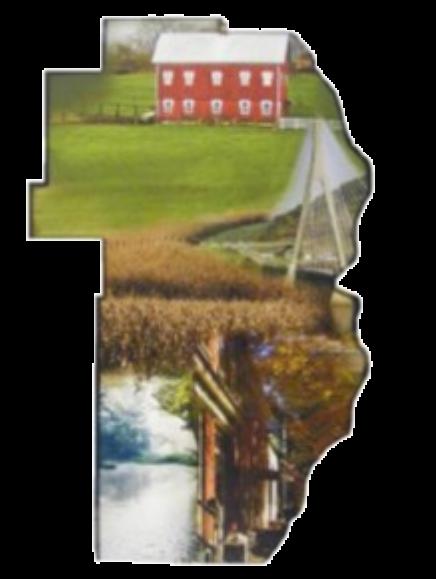2024 Board of Supervisors Election
The Jefferson Soil and Water Conservation District (JSWCD) is guided by 5 volunteer board members who are elected to their positions for 3 year terms. These board members are community members who help make funding decisions on how local and state funds are spent to improve the use of conservation practices in Jefferson County.
The Ohio Soil and Water Conservation Commission will cause an election of Supervisors of the Jefferson Soil and Water Conservation District (SWCD) to be held in accordance with Chapter 940 of the Ohio Revised Code. Individuals who own or occupy land within the Jefferson Soil and Water Conservation District and are 18 years of age or older may vote for Supervisor.
There are three ways an eligible voter can cast a ballot:
1.) At the SWCD office: 500 Market Street, Mezzanine, Suite 4, from 9/30/2024 until 10/28/2024 during normal business hours (8:00 am to 4:30 pm) ; or
2.) At the SWCD Annual Meeting, which will take place at St. Florian Hall, 286 Luray Dr., Wintersville, Ohio 43953 on 10/28/2024 from 6:00 pm to 7:00 pm ; or
3.) Voting absentee from 9/30/2024 until 10/28/2024, by requesting the ballot application and election ballot from the SWCD office at the following address: 500 Market Street, Mezzanine, Suite 4 Steubenville, Ohio 43952. Absentee ballots may also be requested by calling 740 264-9790, or by email at: wzadanski@jeffersoncountyoh.com.
Absentee ballots must be received at the SWCD office by 10/28/2024 at close of business at 4:30 pm.
One Supervisor will be elected to a three-year term commencing January 1, 2025 and ending December 31, 2027.
Shawn Dougherty and his wife Beth have been farming together since the 1980’s, for the last twenty years in Toronto, Ohio. They are the authors of The Independent Farmstead, Chelsea Green Press 2016.
Shawn and Beth write a regular column for Plain Value magazine as well as articles for Hobby Farms, Mother Earth News, Grit, and other publications. They can be seen on Video through The New Polity, Justin Rhodes, The Living Web, The School of Traditional Skills, Homesteaders of America as well as heard on numerous pod casts.
Shawn and Beth are Founding Board members of the Healing Land Farming Organization and Shawn is completing his first 3 year term as a Supervisor for the Jefferson Soil and Water Conservation District.
They speak around the country on sustainable agriculture at a variety of venues including Homesteaders of America, The Modern Homestead Conference, The Rory Feek Homestead Festival, The Ozark Homesteading Expo, The Healing Land, The Alaska Homestead Expo, Homestead Heritage Conference, Middlefield Amish Conference, and the West Virginia Homestead Conference.
Their ongoing project is to identify and test the means by which farming was done for centuries with a minimum of off-farm inputs. Their research has led them to identify grass conversion, especially the daily conversion of grass into milk by dairy ruminants, as a key to whole-farm sustainability, combined with the integrated nutrient feed that are possible with a community of diverse animal and plant species, domestic and native.

Brent Nemeth is a life-long resident of Jefferson County, raised as a toddler in Tiltonsville, and then in Rayland thereafter. He attended Buckeye South elementary before transferring to the Linsly School in Wheeling, WV, graduating in the Class of 1994. In 1998, Brent graduated Magna Cum Laude with a B.S. in Civil Engineering from Rose-Hulman in Terre Haute, IN. In that same year, he went on to work for Consol Coal in its underground WV and PA long-wall coal-mining operations, collecting and analyzing production data, as well as in Consol’s surface engineering department, assisting in the design and construction of prep. plant, fan site, and conveyor development projects. He later transferred to Michael Baker, Jr., Inc. in Pittsburgh, PA, where he performed in the design and construction of water-resources, environmental-engineering, and water and wastewater treatment plant projects in and around the city, as well as in Baltimore, MD, and in Gary, IN. At the same time he worked at Baker, Brent also served in his home town as Village Administrator for the Village of Rayland. In 2003, Brent began working in sales, engineering-related, and land-development matters for his family’s concrete and river-unloading businesses in Tiltonsville and Morristown, OH.
Steve Orwick has been married to Karen Daily Orwick for 49 years and resides in Bloomingdale, Ohio.
Steve graduated from Wintersville High School in 1974, entered the United Brotherhood of Carpenters in 1978, attended Kent State University in 1998 and became a Career Tech teacher at Jefferson County Joint Vocational Sschool where he taught for 23 years and retired in 2021. He currently is a volunteer helping Mr. Fred Jones in the Power Mechanics program at the JVS.
Steve and Karen have a son, Josh Orwick, married to Amie, Grandson Grayson, Granddaughter Layna. Josh resides in Massillon Ohio and is a watercraft officer with the Ohio Department of Natural Resources.
They also have a daughter, Haley Orwick Krieder, married to Jeff, Granddaughter Amy, and Granddaughter Harlow. Haley resides in Ashley, Ohio and is a nurse at the Ohio State University James Hospital, Columbus, Ohio. She has a small farm raising goats, sheep, and poultry.
Steve’s children and grandchildren participate in their local county fairs and 4H.


His son, Treston, was born in 2004, and his daughter, Taylor, in 2007. In 2007, Brent began attending law school at West Virginia University where he graduated in 2010 with a J.D. During law school, he had the privilege of interning in chambers with Federal District Court Judge Fred Stamp in the Northern District of West Virginia. Also while in law school, Brent taught constitutional law as a graduate assistant. After completing law school, Brent passed the bar and began working as a solo practicing attorney, representing clients in business matters, estate planning, and general civil litigation. Brent now currently works as general legal counsel for his family’s businesses. Brent resides in Dillonvale, OH on his farm that he purchased and began farming in 2000. Today, Brent owns head brood beef cow operation on approximately 250 acres. The farm is on Facebook at SB Nemo Farm, where one can find a description of and Brent was named as Conservation Farmer of the Year in 2009. Brent also worked as an adjunct professor for West Liberty University from 2010-2020, lecturing on the topics of Environmental Issues and Business and Leadership Philosophy. Brent’s goal in serving on the JSWCD board would be to bring his real-world, practical experience in farming, engineering, and law-related matters to promote the District’s goals, while, first and foremost, being a strong voice advocating for the agricultural industry of Jefferson County.
Steve spends a lot of his retirement in the outdoors in many areas and believes he could help with the Hellbender project and Piney Fork project along with other aspects of the soil and water board.
Award Ribbons Given at County Fair
JSWCD hosted their annual Name Plate Recycling Contest at the Jefferson County Fair. Contest participants in each barn were judged on the creativity, originality, attractiveness and diversity of recycled materials used to make a stall name plate of either their own or animals name.
Ribbons made of recycled materials were awarded to a winner in each barn and each winning name was placed in a drawing for a cash prize.
Plat book atlases show individual township maps of land ownership and acreage for rural areas within Jefferson County Makes a great GIFT idea for Birthdays, Christmas and more!
Plat books may also be purchased at the District office or requested for mailing.
Congratulations
Lina for winning the 2024
JSWCD Recycled Name Plate drawing. Lina’s name was drawn during the Natural Resources Ag Field Day and announced during the Livestock Auction. She entered her horse “Lefty” into the contest.
DROUGHT ASSISTANCE REMINDER:
USDA Farm Service Agency (FSA) Disaster Assistance Programs Are Available for Grazing Livestock
Livestock Forage Disaster Program (LFP)
grazing losses for covered livestock due to drought on privately Livestock eligible for LFP include: beef and dairy cattle, sheep, goats, alpacas, and other grazing animals that have been or would have been grazing the eligible grazing land or pastureland. Recently, FSA updated LFP policy to expand program eligibility to include additional income producing grazing animals such as horses and ostrich, that contribute to the commercial viability of an agricultural operation. Livestock used for hunting and consumption by the owner and horses and other animals that are used or intended to be used for racing and wagering remain ineligible. Livestock producers interested in applying LFP should contact the FSA office with any questions about the eligibility of specific livestock and forage crops.

Emergency Assistance for Livestock, Honeybees, and Farm-Raised Fish Program (ELAP) – provides emergency relief for losses due to water shortages which are not adequately addressed by other disaster programs. For eligible livestock in qualifying counties, ELAP provides financial assistance for the transportation of water to livestock. Adequate livestock watering systems or facilities must have existed before the drought occurred and producers are eligible only if they do not normally transport water to livestock. Livestock that were or would have been in a feedlot are not eligible. ELAP covers the additional cost of transporting water and does not cover the cost of the water itself.
Interested producers please call the USDA Farm Service Agency (FSA) for additional information; acreage reporting/documentation requirements; or to set up an appointment: (740) 937-2500. Program signup is ongoing through January 30, 2025.
Please continue checking the District’s website and Facebook page for up-to-date drought assistance information.
Get to Know the SPOTTED LANTERNFLY…………….and then squash
Favorite Foods in our area, adult SLFs tend to focus on the invasive tree of heaven (A. altissima) (pictured above) and grapevine (Vitis vinifera); but also prefer hops, ornamental landscape plants, apple, walnut, and hardwood trees. As they feed, they excrete sticky, sugar-rich fluid called honeydew that can build up on plants and on the ground beneath infested plants, causing sooty mold to form. Honeydew is attractive to other insects, such as bees, ants, and wasps, which may feed on it.
Life Cycle September through December, eggs are laid on trees and other surfaces. In spring & early summer, the eggs hatch and the nymphs begin feeding on a wide range of host plants by sucking sap from young stems and branches. Adults (pictured above) appear in late July.
Damage SLF stresses plants and causes localized branch damage. SLF feeding is considered a plant stressor and may contribute to the long-term weakening of established plants and trees.
Spot the Egg Mass!!!
Adult SLFs lay egg masses on outdoor surfaces (trunks of plants, brick, stone, wood, and more)
It is currently considered to be primarily a nuisance pest in residential landscapes.
Slow the Spread check vehicles and anything outdoors(furniture, mowers, firewood, etc.) for hitchhikers
Manage SLF on your property by promoting plant health, destroying adults and eggs, using traps, and/or using chemical control when appropriate.
Scan the QR code for
740-264-9790
JSWCD Mission Statement
“Promoting
Conservation of Our Lands and Waters”
WeÊareÊonlineÊandÊonÊFacebook www.jeffersonswcd.org
JSWCD BOARD: JSWCD STAFF:
Mark Nelson, Chair Irene Moore, District Administrator
Duayne Wetherell, Vice Chair Wendee Dodds, Operations Manager/Natural Resources Specialist
Shawn Dougherty, Secretary Mark Petho, Stormwater Resources Coordinator
Ken Perkins, Treasurer
Aaron Dodds, Projects Manager
Andrew Morris, Public Relations Aidan Sammut, Cross Creek/Yellow Creek Watershed Program Manager
Crystal Conaway, Ag & Natural Resources Technician
Amy Browning, Bookeeping Manager/Program Assistant
JSWCD ASSOCIATE BOARD MEMBERS: Dr. Eric Haenni, Jodee Verhovec, Kam Pendleton & Paul Sweeney
"The U.S. Department of Agriculture (USDA) & JSWCD prohibit discrimination in all programs and activities on the basis of race, color, national origin, age, disability, and where applicable, sex, marital status, familial status, parental status, religion, sexual orientation, genetic information, political beliefs, reprisal, or because all or a part of an individual's income is derived from any public assistance program. (Not all prohibited bases apply to all programs.) Persons with disabilities who require alternative means for communication of program information (Braille, large print, audiotape, etc.) should contact USDA's TARGET Center at (202) 720-2600 (voice and TDD). To file a complaint of discrimination write to USDA, Director, Office of Civil Rights, 1400 Independence Avenue, S.W., Washington, D.C. 20250-9410 or call (800) 795-3272 (voice) or (202) 720-6382 (TDD). USDA is an equal opportunity provider and employer."

If you would like to stop receiving printed newsletters and would prefer to receive electronic versions via email, please instruct us by contacting us at 740-264-9790 or abrowning@jeffersoncountyoh.com
We appreciate your help in minimizing unwanted printed mail.
If you still want the print issue, no action is required.
ColumbusÊDayÊ(OfficeÊClosed)ÊáÊOctoberÊ14
JSWCDÊBoardÊMeetingÊáÊOctoberÊ21
VeteransÊDayÊ(OfficeÊClosed)ÊáÊNovemberÊ11
ThanksgivingÊDayÊ(OfficeÊClosed)ÊáÊNovemberÊ28
JSWCDÊBoardÊMeetingÊáÊNovemberÊ18
JSWCDÊBoardÊMeetingÊáÊDecemberÊ16
ChristmasÊ(OfficeÊClosed)ÊáÊDecemberÊ25
